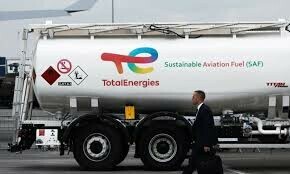SEA ISLAND, June 11: A Group of Eight summit meant to enshrine a new era of trans-Atlantic unity ended with fresh cracks over Iraq, but new on-paper pledges to fight poverty, terrorism and revive global trade talks.
The three-day meeting in a locked-down resort off the US east coast witnessed the world debut of Iraq's new leader, a US plan for reform in the Muslim world and a fresh call for action on the Israeli-Palestinian quagmire.
But an attempt to portray the Western world as once more united on Iraq, after a UN Security Council resolution on sovereignty passed unanimously on Tuesday, foundered on a familiar scenario: US-France antagonism.
Presidents George Bush and Jacques Chirac met face to face on the last day of the G8 summit. But they could not narrow differences on how Nato should operate in Iraq, after the US leader suggested the western alliance should play a greater role.
"Any interference by Nato in this region appears to us to run great risks, including the risk of a confrontation between the Christian West and the Muslim East," Chirac said.
Bush, hoping to put months of damaging headlines over Iraq behind him as he steels for a tough re-election bid in November, said he was encouraged that the world backed the new Iraq.
"The Iraqi people can know that the world stands with them in their quest for a peaceful, democratic and prosperous future," he said. "The enemies of freedom in that nation know that they are opposed by the might and resolve of free nations." But he admitted "I don't expect more troops from Nato to be offered up." Bush's chief war ally, British Prime Minister Tony Blair, predicted the disagreement over Nato's role "will be overcome," a day after Bush introduced Iraq's new interim president Sheikh Ghazi al-Yawar to the summit.
The G8 on Thursday also called on the diplomatic quartet on the Middle East to make a new bid to kick start peace talks bogged down in the Israeli-Palestinian quagmire.
They welcomed Israeli plans to withdraw from Gaza and parts of the West Bank and pledged to "restore momentum" to an international roadmap aimed at ending the conflict. The G8 called on quartet powers the United States, Russia, the United Nations and the European Union "to meet in the region before the end of the month."
But US officials conceded the meeting would be a routine gathering of diplomats and would not involve UN chief Kofi Annan, US Secretary of State Colin Powell, Russian Foreign Minister Sergei Lavrov and Irish Foreign Minister Brian Cowan.
Bush earlier won an endorsement from leaders for his plans for a social, political and economic reform in the Middle East and northern Africa, despite significant scepticism in Europe and the Arab world.
AID FOR AFRICA: Before leaving their exclusive retreat, the summit leaders invited African leaders to their meeting and endorsed proposals aimed at easing poverty and recommitting to the fight against HIV/AIDS.
The G8 also promised to seek a two-year extension to an expiring debt reduction initiative, HIPC, for the poorest countries. For their part, the presidents of Algeria, Ghana, Nigeria, Senegal, South Africa and Uganda sought to dispel suggestions they came to the rich-nation summit on this millionaires' private island retreat as beggars.
On the trade front, the G8 vowed to resolve by the end of July differences blocking a free-trade deal under the so-called Doha round of global negotiations and pledged to "move expeditiously" to complete a framework accord on key issues to put the talks back on track.
They also called on Sudan on Thursday to disarm militias blamed for "massive human rights violations" in that country's troubled Darfur region. Discord surfaced over Iraq's mountainous debt, with European states resisting US calls to quickly forgive almost all of it.
The United States is pushing for up to 90 per cent to be cancelled, but countries like France, Russia and Canada are unwilling to go that far. Chirac said France would not go beyond 50 per cent for the country, which has the world's second-largest oil reserves, noting that impoverished African countries are seeking the same relief in vain. "This has no sense, it's not appropriate," Chirac said of the US proposal. -AFP











































Dear visitor, the comments section is undergoing an overhaul and will return soon.